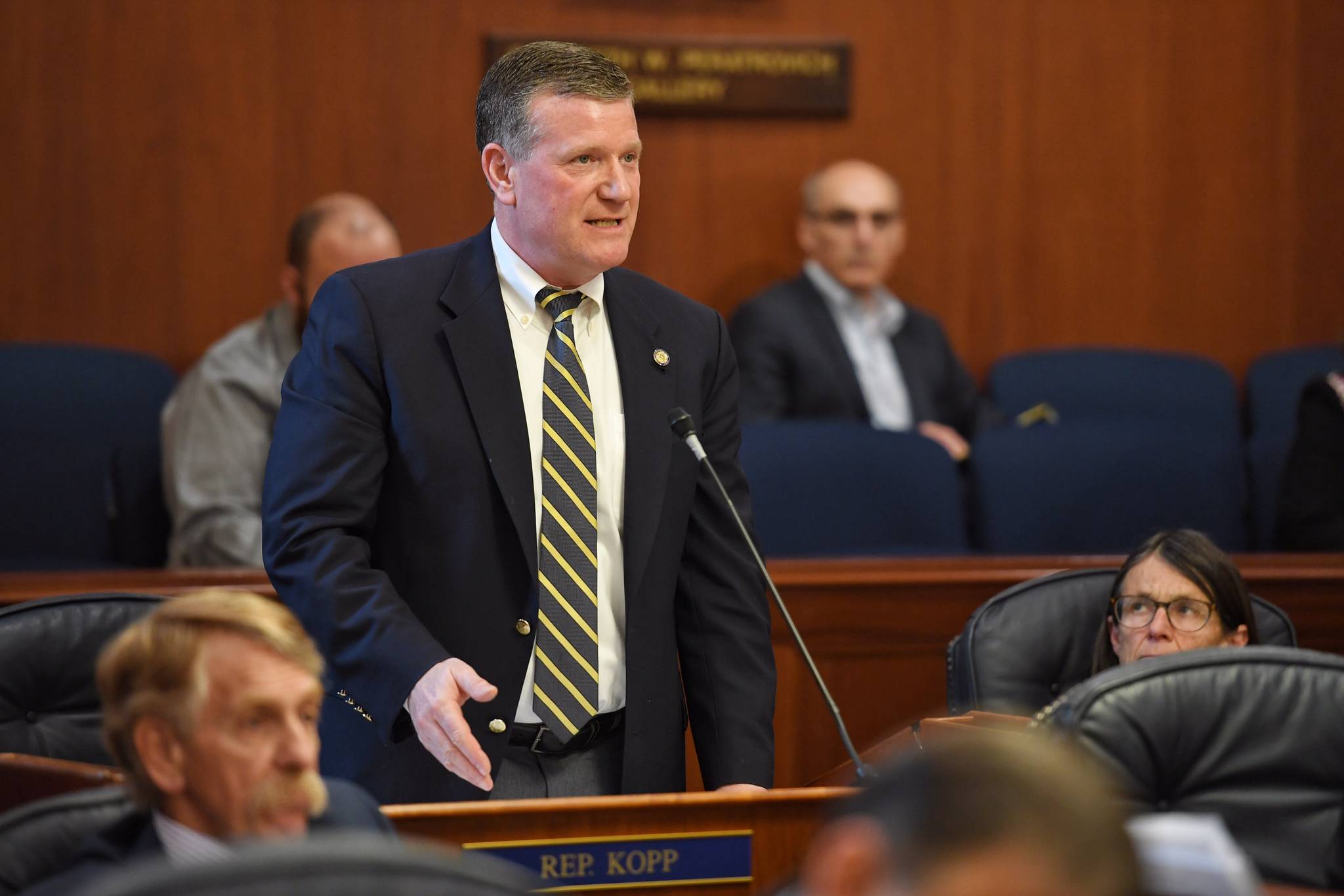Entering what is, in theory, the final day of this year’s legislative session, the Alaska Legislature still can’t agree on how to address crime in the state.
Last week, the Alaska House passed House Bill 49, which rolled back some portions of the controversial criminal justice reform legislation Senate Bill 91. The Alaska Senate then took an even more aggressive approach, adding more than 20 pages to the bill and proposing to dramatically increase the state’s spending on public safety.
About three hours after the Senate voted unanimously to approve its version of the bill, the House reconvened and promptly rejected those changes, by a 22-18 vote.
Rep. Chuck Kopp, R-Anchorage, (the House Rules chair and a member of the House Majority) spoke on the floor Tuesday and said the Senate’s changes were too extreme. Kopp, who voted against accepting the changes, said lengthening sentences and other changes in the Senate’s version could cost the state hundreds of millions of dollars more than the House’s version.
More than anything, Kopp said, he believes there should be a conference committee put together with members from both bodies to negotiate how the final bill will look.
“I believe many of us here need to learn about the changes made in the other body and the rationale, hear it out,” Kopp said.
Kopp will likely get his wish. HB 49 heads back to the Senate, which will have a chance to settle for the House’s version. If the Senate refuses to do that, a conference committee will be formed to hash it out.
Senate Secretary Liz Clark said in an interview Tuesday that she’s seen conference committees get their jobs done in just one day, but it will be an extremely tough task to tackle HB 49, which is nearly 100 pages.
The Legislature can extend the session by 10 days, if 2/3 of each the House and the Senate votes to do so, according to the Alaska Constitution, article 2, section 8. Either the Legislature or the governor can call a special session as well.
The Senate’s changes took particular aim at sex crimes and drug offenses, and sought to tie up loose ends left in the House’s version. The Senate’s version eliminates a law that allows marriage to be used as a defense in some sex crimes, which spurred heated debate last week.
Sen. Shelley Hughes, R-Palmer, said on the floor that the Senate sought to make sentences on a few charges even harsher than the state had before SB 91 passed in 2016: state sex assault in the second and third degree, sexual abuse of a minor, indecent exposure, child pornography and indecent viewing of pictures.
The Senate’s version of the bill also prohibits those convicted of murder from getting credit for “good time” served, and states that they can’t get eligible for parole until they’ve finished 2/3 of their sentence.
One of the major sticking points in the bill, according to debates Tuesday, will be the cost of these changes. Lawmakers in both the House and Senate expressed concerns about extending sentences without a thorough vetting of how much it will cost.
Sen. Bert Stedman, R-Sitka, rebutted that concern. Stedman, the co-chair of the Senate Finance Committee, is usually level-headed and down-to-business while talking about money, but allowed himself to get a little emotional on the floor Tuesday.
“It’s worth it,” Stedman said of increased spending for longer sentences. “Keep them behind bars. Why let them out early? Those are the most egregious crimes known to man, first- and second-degree murder. I don’t have a lot of sympathy for them. That’s for the minister, for the lord, it’s not for the Senator from District R, I can clue you in on that.”
Speaking from his chair prior to Tuesday’s House vote, Speaker of the House Bryce Edgmon gave a bit of a preview to how negotiations between the two bodies could go.
“There are tremendous amounts of differences,” Edgmon said. “The dialogue can go on for a very long time.”
• Contact reporter Alex McCarthy at amccarthy@juneauempire.com. Follow him on Twitter at @akmccarthy.

